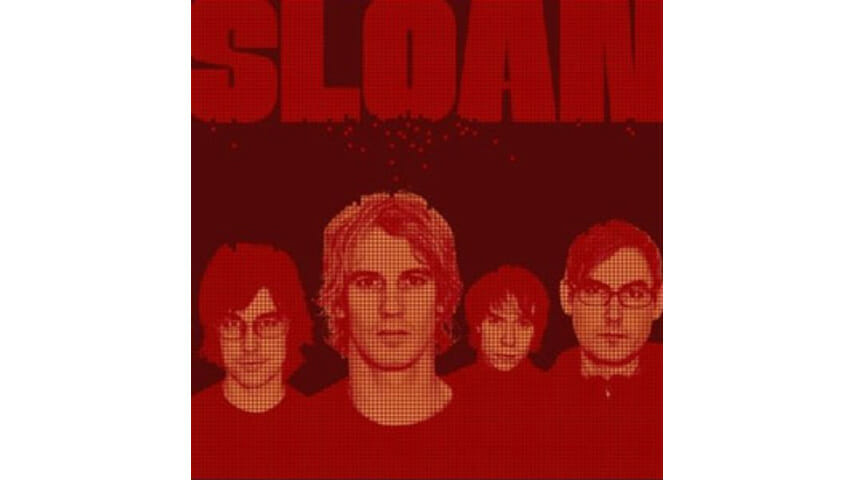
Nova Scotia’s favorite sons dial down quantity, if not quality, on 10th full-length
“These days I’m up to my ass in routine,” sings Sloan bassist Chris Murphy on his band’s tenth album in 15 years, Parallel Play. “I’m not a kid anymore!” No kidding—after spending more than a decade as Canada’s coulda/woulda/shoulda sure-fire export hitmakers, it’s safe to suggest that at this point in its career, Sloan’s meticulously-crafted power-pop has likely found its audience, with each successive album consolidating the group’s considerable strengths for a rabid fanbase while doing little to expand beyond the cult who’ve already discovered them.
On 2006’s 30-song, hour-plus opus Never Hear the End of It, Sloan attempted to break out of this pre-assigned penalty box into which most listeners had placed the band, de-emphasizing the pointillist songcraft for which it had become known in favor of Guided By Voices-like song fragments that often concluded just where the Sloan’s sugar-coated verse/chorus/bridge momentum usually grabbed hold. It was a bracing, brave record, and it’s hard not to hear Parallel Play’s 13-song, 37-minute TV dinner as something of a retreat into orthodoxy for the quartet—sleek and streamlined where the previous record allowed for shagginess and imperfection.
Sloan has always been something of a Beatles-like aggregation (not only in sound, but in body, with all four members contributing songs and singing to the equation), and Parallel Play certainly showcases the different faces of the band, even within the album’s tighter, more drawn-down structure. Jay Ferguson’s “Cheap Champagne” and “Witch’s Wand” call to mind the ‘70s MOR rock of America and The Raspberries, wrapping each song in airy melodies and wispy sonic textures; drummer Andrew Scott contributes tightly-wound punk nuggets such as “Emergency 911” and the Dylanesque snippet “Down in the Basement,” while guitarist Patrick Pentland tosses in “The Other Side,” a Posies-like melody drowning in a swift-moving stream of feedback and effects.
Bridging this rock/pop divide are Murphy’s songs, which put into fine relief the position in which his band finds itself, playing a kid’s game (rock ‘n’ roll) with an adult’s more finely-tuned sensibilities. No longer is Sloan singing—as it did so compellingly on “Underwhelmed,” from its 1993 debut Smeared—about schoolyard crushes and pulling decent grades despite hormonal interference. Instead, Murphy tackles international relations and comparative politics on songs such as “All I Am is All You’re Not,” a pointed reminder that his native Canada is still a fairly different place than the U.S.A.: “What I lack in pizzazz / I make up in charm just as expensive, but I can’t be bought / I’m all you’re not.”
Parallel Play ends up being a fan’s record: one whose economy and intelligence will delight the Sloan faithful but probably won’t change the band’s fortunes or alter its trajectory with a generation raised on American Idol (or if you’re reading from the band’s native Halifax environs, Canadian Idol). But from the sound of it, this is actually an entirely welcome turn of events.